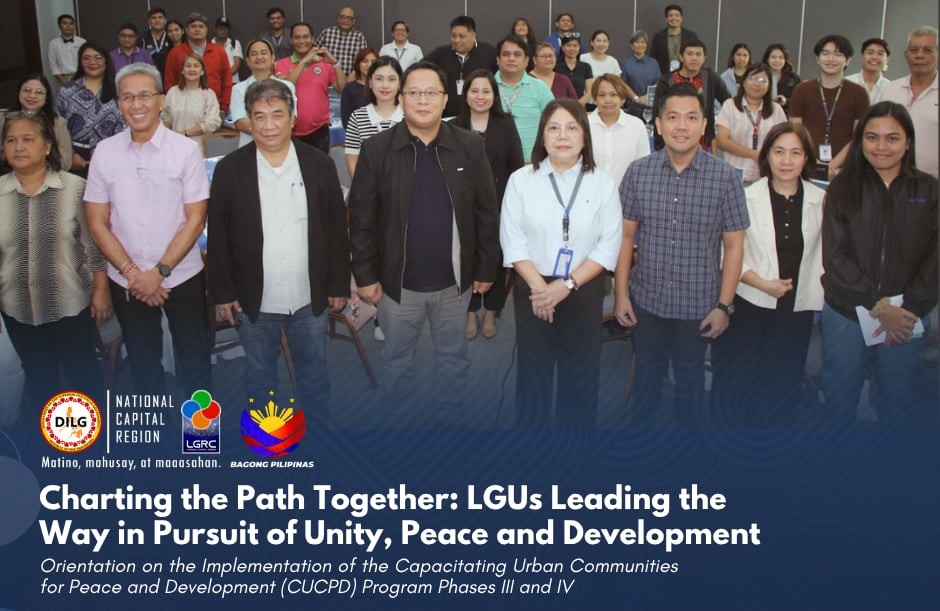
Efforts to bring peace and development closer to Metro Manila’s urban communities took a significant step forward as the Department of the Interior and Local Government – National Capital Region (DILG-NCR) formally rolled out Phases III and IV of its Capacitating Urban Communities for Peace and Development (CUCPD) Program.
Held in Quezon City, the activity gathered DILG field officers, local government functionaries, and national government partners to take stock of what the program has achieved so far—and to plan the next steps.
In her opening message, DILG-NCR Regional Director Maria Lourdes L. Agustin emphasized the role of local governments in sustaining peace and development. “Kaakibat ng ating mithiing makamit ang inklusibo, payapa, at maunlad na mga pamayanan ay ang ating tungkulin na linangin ang kaalaman at kasanayan ng ating mga local functionaries,” she said.
The CUCPD Program, now in its third and fourth phases, was designed to help communities understand and respond to the deeper issues that threaten peace—not just in the rural areas but especially in Metro Manila.
NTF-ELCAC Stakeholders Engagement Director Jose Descallar gave participants a broader view of the national peace and development strategy. He shared that while armed conflict in the countryside has waned, challenges in the urban landscape continue to evolve. Recruitment efforts and social vulnerabilities remain, especially in areas where poverty and disinformation are present.
“This is why long-term, community-driven solutions are necessary,” he said, adding that public communication and engagement also need to keep up. “Modern issues require modern approaches—and clear, consistent messaging matters,” Director Descallar noted.
CUCPD Regional Focal Person Mary Criselle B. Mejillano presented the program’s key accomplishments from Phases I and II, outlining lessons learned and actions needed for the continued success of the next phases. She emphasized that peacebuilding must be locally driven and responsive to specific community contexts.
The event also featured discussions and inputs from PDO II Ralph Anthony Frasdilla of DILG-NCR, NICA Regional Director Ricardo Batalla, and NTF-ELCAC Directorate for Production Alexander Umpar, reinforcing the value of multi-sectoral collaboration in the rollout of the program.
“Our main objective is to inform the general public to help protect our democracy. For us to achieve this, our collaboration efforts are definitely needed,” Director Batalla stated.
In closing, DILG-NCR Assistant Regional Director Atty. Ana Lyn Baltazar-Cortez, CESO IV, reminded everyone that while the program has come a long way, there is still much work to do.
“This is just the halfway mark. With Phases 3 and 4 ahead of us, and with new strategies and stronger partnerships, we’re better prepared to keep going,” ARD Baltazar mentioned.
The initiative’s message was simple but firm: if peace and development are to take root in Metro Manila’s most vulnerable communities, it must be a shared journey—one built on trust, collaboration, and a commitment to leave no one behind.
